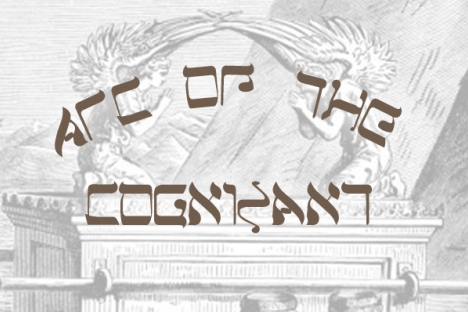COLUMN: Alongside climate threat, add lethal change in geopolitical atmosphere
Almost everything in your life, reader, is poised on a threshold of change. War does that.
War is back. One man decided it. Deterrence failed. He calculated that expected gain outweighed potential cost, and that there was a military solution to his political problem. He believes what he believes and no one has access to his thoughts. His thoughts are the ultimate cause for the war.
To explain War, never underestimate one-person Rule
Why is this war the doing of one single individual, Vladimir Putin? How does he have such power?
It might be the oldest fact in human politics, from the start of human history. One man – yes, males must shoulder this peculiar gendered defect – starts a war by his will alone. Putin and Sargon the Great or the Egyptian Pharaoh are the same phenomenon though five thousand years separate them. The rule of one man over millions of his fellows enables war.
Why is Russia ruled by one man’s will? This is an enormous question.
Russia seemed on the verge of liberal democracy in 1992, by all the calculations of Western experts in politics; democracy was the stated intention of Boris Yeltsin before 1999 when Vladimir Putin became his designated successor. It failed to become a liberal electoral democracy nor a normal market economy. It is a peculiar state with capitalist oligarchs of vast wealth, a tightly-controlled pretense of electoral democracy, organized crime shading into the oligarchy, and an autocrat at the peak of power.
For this reason, I have appended a lot of links to scholarly pieces devoted to the question of the failure. A reader with the same interests as I might want to first read these pieces at the end of this column.
War is back
I never thought about whether war could return to Europe, assuming as so many others that Europe and its economic integration, institutional stability, and historical wisdom, was safely beyond a resort to war. My ideas about the war of 1939-45 were formed from my father, news media, movies, TV, and school lessons. There are few Canadians of my generation uninformed about the war by such sources.
As an adult and as an academic, I have studied history and literature and have deepened my personal comprehension of WWII to a degree more detailed than the average, if I may be so bold to claim that.
The peace we lived in when I was a child was of course overshadowed by the Cold War. The Cold War was over in 1992. We won. The enemy, the Soviet Union, disintegrated as a Power.
After that, what else could threaten Europe, the “cradle” of our settler-civilization in Canada? With NATO as our shield, Canadians believed war in Europe, in Canada, was unthinkable.
No war since 1941 has had the potential to become the third world war. In 1939, Canada was at war as an ally of Britain and France, but the USSR, USA and Japan were not involved until 1941.
The defeat of Germany, the founding of the UN, the deterrence of the Cold War, made peace in Europe our natural state. I grew up in that reality. All that is gone over the figurative horizon.
War, same as ever
We of the boomer generation knew war as a thing our fathers fought and won.
We knew the Viet Nam war as a background to our exciting youth in the 1960’s. Viet Nam on TV showed us the horrors, and many Hollywood films showed us the drama in the lives of individuals.
A crisis over Cuba in 1962 brought us close to nuclear war, and I recall that fearful time quite well, when I was 10 years old.
That is war, as I knew it at least.
The numerous other wars that have raged since I was born in 1951 have all been “too foreign” to truly sink deeply into my consciousness, whether in Africa, the Middle East, or Asia. Israel’s wars have certainly stimulated me to have opinions, and I demonstrated against its actions in Gaza.
The Iran-Iraq War of 1980-88 was horridly deadly, a drawn-out proxy fight when the West armed and financed Saddam Hussein and the Communist bloc backed revolutionary Iran. One million died in it.
https://www.history.com/topics/middle-east/iran-iraq-war
https://www.history.com/topics/middle-east/persian-gulf-war
The Gulf War in 1991 was so swift, the UN and US success so complete, I hoped, along with many well-informed experts, that a new world order of widespread liberal democracy and global economics were at hand. https://en.wikipedia.org/wiki/The_End_of_History_and_the_Last_Man
We did not get stable democracy in the former USSR or China. We got market-capitalist globalization but we did not get better distribution of wealth; rather the opposite. The peace was temporary; the USA was a hegemonic superpower for a mere eye-blink of time. China arose to become a Power by 2010. Russia remained a formidable nuclear force with huge conventional forces as well, failing to evolve into a liberal democracy.
I and my friends have been involved in peace-movement activism in Nelson to protest various wars, foremost the American invasion of Iraq in 2003, and Canada’s great mistake, a war in Afghanistan.
Memories of those many well-reported wars during my life, all wars far away from Canada, are being refreshed by what is happening in Ukraine, but this one also feels very, very different.
Why is this one in east Europe affecting us in new ways?
War, so different now
This war is affecting a lot of Canadians in a personal way even though Canada is not involved in the military combat and has not declared war. People I know are feeling this war far more intensely in their emotions and mood than ever they felt during our Afghan Mission from 2001 til 2014.
This is a war we are profoundly investing in with our feelings and response by civil society to the humanitarian needs of Ukrainians. Our engagement begins with our feelings of anger and grief, and extends far into the material contributions ordinary civilians are organizing for the victims of war.
The electronic and economic connectedness of the world is one explanation for this. We feel more connected too when the people are European rather than Asian, and that is a fact whether one likes it or not. High gas prices are immediate effects, and the blanket news coverage of the war envelops us.
But most important as an explanation why this war feels so much deeper in impact, is fear. This war can easily slide into World War Three, with nuclear weapons not ruled out.
Putin can make this into a world war; NATO can do the same.
China can reinforce Putin to be more willing – or less – to confront NATO. He and Xi Jinpeng announced at the start of the Beijing Olympics that the friendship of the two states has “no limit” to what each will do for the other. There are “no ‘forbidden’ areas of cooperation”, reads the official media release from them on February 4 this year. This is difficult to parse for an exact meaning.
It is not clear Xi knew just how soon Putin would play the China card and attack Ukraine.
A Sino-Russian bloc would be in some ways invincible, a bloc of territory, population, and material power NATO cannot overcome, though we could hope for stalemate.
Canadians have to re-evaluate just about everything in their lives when they think about WWIII.
What should Canada and the West do?
One, we should not enter combat with Russia unless Putin attacks a NATO member. Finland might not appreciate that but for the moment he is too occupied to attack it. The Baltic Republics are NATO members and they are in effect the border of Canada and we must fight to honour our treaty if any of them face invasion.
Two, we can use every economic and financial weapon that might render Russia materially incapable of continuing the war. This is a lot of impact. Yet Putin has calculated that already. He is not fazed by the deterrent effect of the West and other nations conducting economic battle with him by freezing oligarch assets, withdrawing investment, ostracizing Russian from the international arts, science, and sports community, de-funding Russian enterprise, and ceasing to do business with Russia or inside it.
He will retaliate and our economies, so very sensitive to international networks of supply and demand, will suffer as well as his. If China will indeed recognize no limit to the friendship Xi has promised Putin, he has an ally with resources to replace any Putin loses elsewhere. He can continue his war.
NATO leads Canada’s war policies. That is a given. If WWIII breaks out, we are in it. We suffer.
Three, Canada can also make a sudden new and expensive investment in arming our nation, as Germany will. I do not want social spending to suffer for arms spending. That is what will occur. If you thought healthcare, housing, schools and the environment already have too-little spending by government on their needs, you will be shocked when the military becomes a budget priority.
The pandemic moved us to big spending for a figurative war. The war on the horizon is the real thing.
The international community: is this a real thing?
In a quite recent Arc in two instalments I wrote my appreciation of geopolitics and a new Cold War. I did not say one thing about a new hot war such as we face now. I did say that I could see that the liberal vision of one world under rules and treaties to control how states exercise power, had unravelled.
Putin has said the international liberal order is defunct. Xi has said China does not bow to anyone else in following rules, and will not be measured by the standards of the West and its legalistic norms, and demands respect for China as an equal in all meaningful ways. https://www.brookings.edu/wp-content/uploads/2016/07/xi_jinping_worldview_bader-1.pdf
The conduct of war by all Powers, West, Communist, or any other ideology, is supposedly regulated by the Conventions of War enshrined in treaties and UN resolutions. All Powers commit war crimes — and all deny them and refuse to allow the World Court to adjudicate. The US is as bad as any in this regard.
There is no international community. There is no sense of one world and a family of humanity. There is no authority in the world we all, everywhere, no matter our form of government, accept as an arbiter for conflicts among states. The UN forum is valuable, very much so, but it lacks power to stop war.
One must constantly remind oneself that the Western mind and its perspective is not a norm on the planet. The world order established after WWII by the combined power of the three great victors – the USA, the British Empire, and the USSR, was, as Stalin knew well, a liberal project of the Anglosphere. He gave it lip service, no more. Stalin and Mao are the models of defiance to the liberal world order followed by many an autocratic leader since the Korean War; the West cannot curtail their liberty.
Should WWIII indeed be at hand, the UN will collapse as the League of Nations did in 1939.
Conclusions
People can be led to war. This is basic. So the internal constitution of a state, how it is ruled, has everything to do with the start of war by any state powerful enough to defy its critics.
Canadians think we are sovereign citizens who are self-governing, as our Constitution says we are, within institutional frames that make our choices effective. Russians and Chinese probably think similarly, within the cultural consciousness normal and natural to themselves and their history.
There is nothing anyone other than Vladimir Putin can say to offer one crystal-clear fact about what happens next in his war. Stopping now is unthinkable for him, literally. He cannot think it. He doesn’t. Only he knows when he can cease his war, feel secure from domestic actors (who would replace him if he is weakened by failure), and feel the war is a success. Only he decides what success looks like.
Words mean very little when one man has such power of command. Adolf Hitler surely demonstrated that. The Leader says “War!” and war is. The followers find reasons why they obey, and on we go.
We are living “history as usual”, in the words of the British philosopher John N. Gray. Writing in 2020, Gray highlights that, throughout history “killing and dying for nonsensical ideas is how many human beings have made sense of their lives”, and notes the irony of attempting immortality through death.
https://aeon.co/essays/how-john-grays-philosophy-helped-me-understand-my-war-experience
Life for Canadians, used to peace and freedom from existential anxieties about threats of violence, is never going back to the ease and comfort I grew up with: this truth will only become evident incrementally. It is the moral of the story about the frog in the water brought to a boil.
https://www.moralstories.org/frog-hot-water/
Was there a moment we missed our opportunity to jump from the water? That is beyond us to know.
APPENDIX
What happened to pervert Russia from a democratic path?
In Russia and other post-Communist states, neoliberal reforms based on the Washington Consensusresulted in a surge in excess mortality and decreasing life expectancy, along with rising economic inequality and poverty. The Gini ratio increased by an average of 9 points for all former socialist countries. Some countries that used shock therapy (e.g., Poland, Czech Republic) did better than those that did not. The average post-communist country had returned to 1989 levels of per-capita GDP by 2005, although some are still far behind that. To further cloud understanding, China made its highly successful transition in a gradualist fashion. According to William Easterly, successful market economies rest on a framework of law, regulation, and established practice that cannot be instantaneously created in a society that was formerly authoritarian, heavily centralized, and subject to state ownership of assets
https://en.wikipedia.org/wiki/Shock_therapy_(economics)
https://en.wikipedia.org/wiki/History_of_Russia_(1991%E2%80%93present)
One of the main lessons from the course of events in Russia from the early 1990s to the present is that change away from one form of authoritarian rule, which usually has been labeled as a transition to democracy, is not irreversible. Some democratic transitions may prove to be shallow, and the changes in post-communist Russia have provided a good example of a shallow transition. The scholarly literature on transitions to democracy that appeared after the early 1980s departed from earlier writings’ emphasis on the growth of social, economic, and cultural conditions for the institutionalization of democracy in the political system. The experience of Russia may encourage us to return to the study of the long-term trends facilitating or inhibiting the growth of democratic institutions.
https://www.sciencedirect.com/science/article/pii/S1879366510000345
https://www.camdenconference.org/wp-content/uploads/2015/05/Urock-Stacie-Gooldrup.pdf
In September 1997, Deputy Secretary of State Strobe Talbott went so far as to declare that Russia was at “the end of the beginning” of its journey toward becoming a “normal, modern state.” “It may be,” he said, “on the brink of a breakthrough.” We all now know how off the mark that prediction was. The financial collapse of last August shattered all illusions about Russia’s trajectory. It marked the failure of the West’s policy of the past seven years, the end of the grand liberal project of rapidly transforming Russia into a normal market economy and democratic polity. Debate, both in Russia and the West, naturally turned to the question of what went wrong and who was to blame. And, in that guise, the question of reform has continued to frame discussion of Russia.
But August should have raised another issue, one that, well into the next century, will have greater consequences for U.S. strategic interests than the question of reform: the fate of Russian power. Although talk of Russian weakness is now commonplace, little thought has been given to the consequences of long-term weakness. But arguably we are witnessing a geo-political and geo-economic shift of historic dimensions, one in which Russia will become less and less an actor in world affairs, while running the risk of becoming an object of competition among more advanced and dynamic powers. This shift, if it indeed occurs, will have far-reaching consequences for all the regions bordering on Russia and thereby for our global strategic interests. It is only prudent that we begin to contemplate a world without Russia.
Many will take exception to this notion. The prevailing opinion in the West is that Russia, as former Russian Foreign Minister Kozyrev once put it, is doomed, by virtue of its size, geographic location, economic potential, and cultural legacy, to be a Great Power.
A stable Russia, prosperous and democratic, made for a much better bet—assuming, of course, that someone had a viable plan for bringing it about. By the time of Talbott’s speech, such a scenario was looking distinctly improbable. During my years in Moscow, I did meet quite a few Russians who placed their faith in the principles of political and economic freedom, though they were clearly members of a small minority. Strikingly little evidence, however, supported the notion that young people were the self-evident constituency for a liberal future. Most of the 20-somethings I met—and especially those from outside of Moscow and St. Petersburg—expressed strongly nationalist views. Though they welcomed the freedom to travel and consume, they just as often mourned the collapse of the Soviet Union.
When Yeltsin announced the appointment of a new reformist government, he elevated to first deputy prime minister his heir-apparent, Nizhny Novgorod governor Boris Nemtsov. Everyone understood Nemtsov’s move to the federal government as his next step toward a presidential bid in 2000. Yeltsin said as much at the time. But economics intervened again. A global financial meltdown felled Russia’s fragile economy in August 1998, forcing the government to renege on debts, devalue the ruble, and plead for International Monetary Fund (IMF) help. International structural factors had a negative, causal impact on Russia’s democracy. The regime may have been super-presidential, but Yeltsin lacked sufficient power to insulate his reformist government from an enraged parliament demanding change. To placate the communists and their parliamentary allies, Yeltsin nominated former foreign minister Yevgeny Primakov as prime minister, effectively ending Nemtsov’s prospects for succeeding Yeltsin.
Ironically, Primakov was compelled to keep many pro-market policies and work with the IMF; he had little choice since his government was broke. But in 1998, Yeltsin’s inner circle, which was sometimes called “the family,” feared a communist restoration if Primakov were to be elected president in 2000. So, they devised a new succession plan and convinced Yeltsin to appoint Vladimir Putin as prime minister and to create a new political party, Unity, to compete in parliamentary elections in December 1999. If Unity performed better than Primakov’s Fatherland party in that election, Putin would gain momentum for the 2000 presidential contest. In the end, Unity narrowly defeated Fatherland in 1999, in a contest considered by most analysts to have been Russia’s most competitive, free, and fair election (if also nasty and negative). After Primakov’s party lost, he was persuaded not to run for president in 2000.
https://www.journalofdemocracy.org/articles/russias-road-to-autocracy/
























